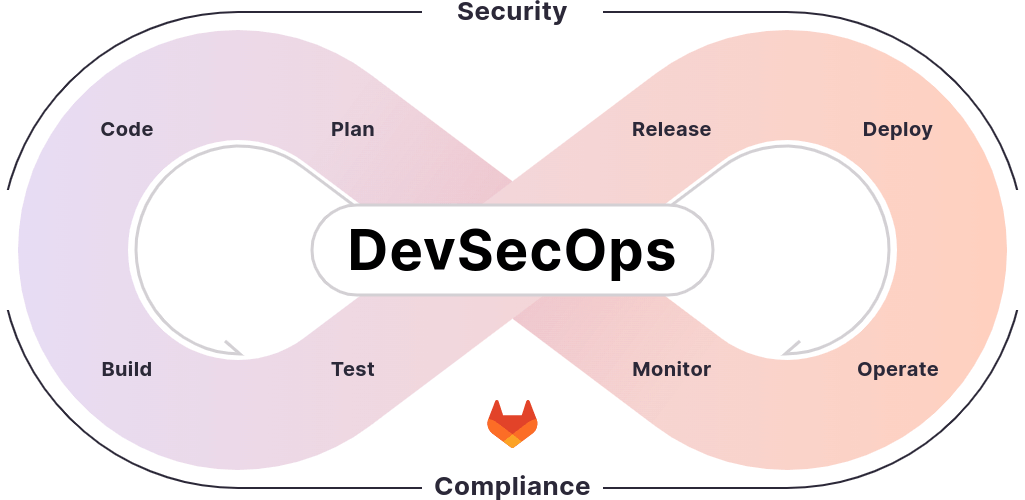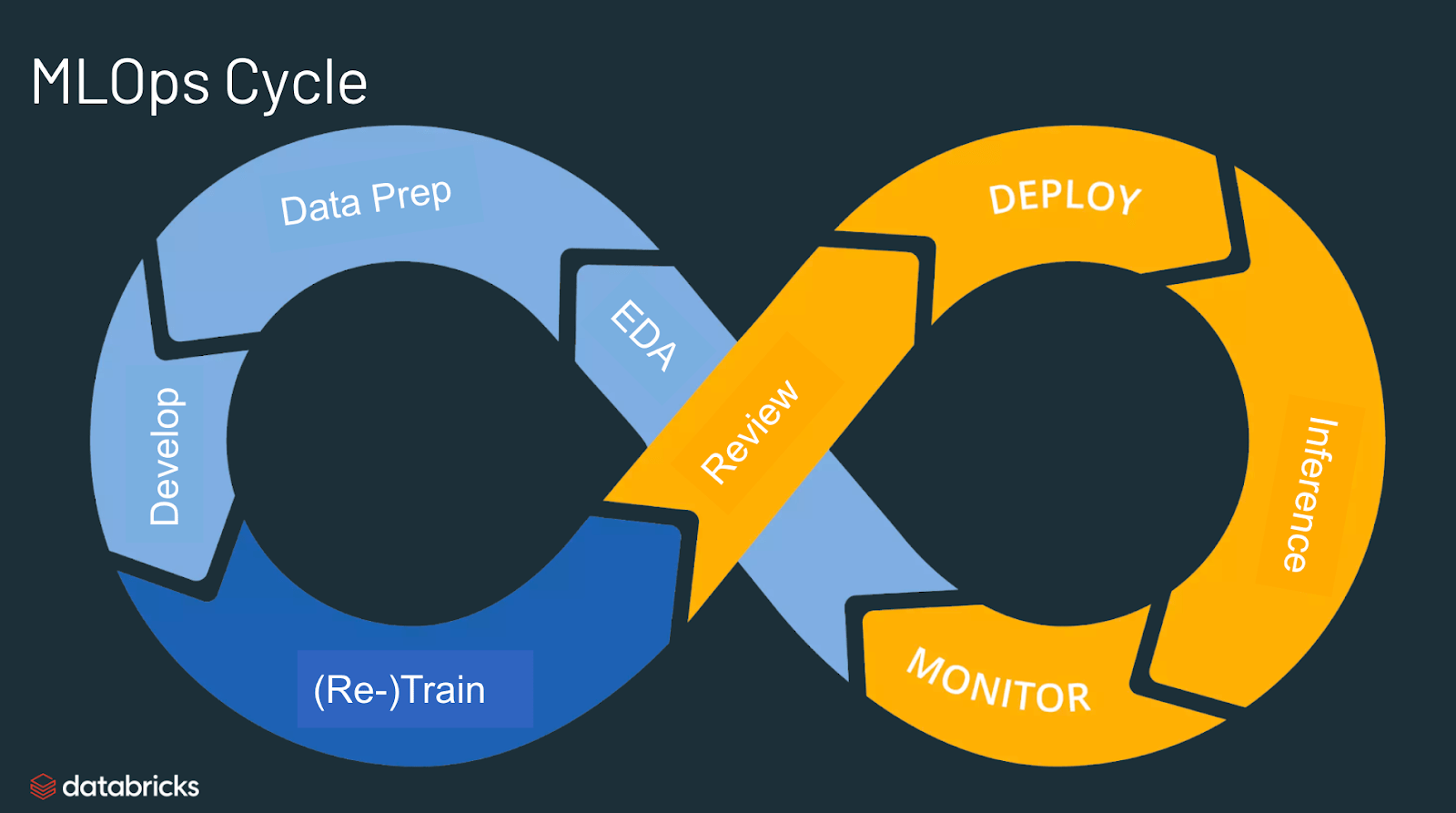This article was published as a part of the Data Science Blogathon.
Introduction
In this article, we will be going through two concepts MLOps and DevOps. We will first try to get through their basics and then we will explore the differences between them. As you might be aware in DevOps we try to bring together the programming i.e development of web app or any software, it’s testing mainly done by QA people and then its deployment. MLOps as well share similar objectives. There is a whole machine learning model development life cycle that we try to streamline. So here in MLOps, we are trying to stitch this lifecycle to make a coherent process that works with minimum or very less hiccups.
Let’s dive into the details of each of these concepts and then we will try to understand key differences between them.
What is DevOps?
DevOps is a practice where people work in a team to build and deliver software at the best possible speed. DevOps enable software developers(devs) and operations(Ops) teams to fasten up the delivery of Software through collaboration, and in an iterative manner. DevOps methodology helps improve communication between your developers and ops working on projects. It best serves the following purposes:
- you can launch new features faster
- increases the customer’s satisfaction and of developers too at the same time.
- feedback loops help better communication
Key principles of DevOps:
- Automation
- Iteration
- Self-service
- Continuous improvement
- Continuous testing
- Collaboration
Image source: https://about.gitlab.com
From this figure above we can understand the whole DevOps process. Organizing tasks and schedules and other stuff starts with this very step called plan. Planning starts according to the user stories made in every sprint if you are using agile methodology. Then starts development or coding part of the software. Testing is done of the application developed so far for any bugs. Once code passes this stage of testing (or continuous integration) it is sent for deployment. In the next step, Ops maintain infrastructure and truncates any vulnerabilities or security issues from the software. The last stage is to monitor the application developed for fixing the hiccups to ensure a smooth end-user experience.
So, I hope with this you are now clear with what exactly is DevOps. Let’s now understand what is MLOps…
What is MLOps?
In DevOps, we saw that it was for streamlining software development and then deploying and monitoring them. In MLOps we focus on Machine Learning Operations. So, the guys who are involved in this methodology are data scientists, IT, and DevOps Engineers. It is a useful approach for creating best-in-class machine learning solutions for the end-user. For developing machine learning solutions the standard lifecycle goes like this:
- Requirement gathering
- Exploratory data analysis
- Feature engineering
- Feature selection
- Model creation
- Model hyperparameter tuning
- Model deployment
- Retraining, if needed
So from this whole pipeline, it is understood that developing models is just a very small part of the whole process. Many other configurations, steps, processes, or tools are to be integrated into the system. For this streamlining, we have this machine learning development methodology MLOps.
Image source: https://databricks.com
MLOps also provide the same benefits as in the DevOps. It increases scalability, efficiency and reduces risk to a greater extent of the whole process of developing a machine learning solution.
So, now we are clear with both these concepts, their approach. Let’s have a look at the key differences between these two methodologies.
MLOps vs DevOps
It is very clear now that outcomes of both are top software quality, faster updates and releases, and higher end-user satisfaction. But there are some differences as well.
Image Source: https://www.pngtree.com
DevOps focuses on building a generic application and uses a standard set of libraries for specific use cases. Whereas MLOps builds a model that feeds inferences and also has a broad scope for languages, tools, libraries, and many frameworks, unlike MLOps. People generally involved in DevOps are Software Engineers and DevOps engineers whereas, in MLOps, Data scientists and Machine Learning Engineers are most required.
The next big difference is the Software developed using the DevOps technique doesn’t usually degrade and if anything new is to be added, it can be easily incorporated, new features can be added on top of the already built solution. Whereas in MLOps, machine learning or an AI solution developed may degrade because of the change in new test data with time. Whenever new data comes after a certain time model may start performing poorly and that is because of a change in the data on which
it was trained. It doesn’t have the same performance which it had initially because probably now we have more useful information than we have in the beginning and also it might be possible that user behaviour is changed. But this does not happen with DevOps. Software never degrades once it is developed, it will always serve the purpose it was made for.
If we compare the cycle of both the methodologies we can see that both have a code, validate and deploy loop. But you can catch differences in Development(code). In DevOps, code creates an application that is converted to an executable and then deployed by validating using wide series of test cases. But in MLOps, code is done to build or train a machine learning model. Validation is done to check the accuracy of the model i.e how well it performs for test data. This cycle is repeated until the model gives a performance at a threshold.
One more major difference between the two is that in DevOps only CI/CD (Continous Integration and Continous Deployment) pipeline is required. Whereas in MLOps one additional thing is required and that is retraining. So CI/CD pipeline with a retraining approach is required for the machine learning or deep learning solution you are developing. So this factor affects the monitoring involved in both the methodologies. In MLOps re-training is required because future data may change especially if data has seasonality in it. So, in order to keep model results consistent and reliable, this has to be kept in mind.
End Notes
In this article, we deep-dived into MLOps vs DevOps and saw what are they, what are differences in them with respect to various conditions. I hope you find this article helpful. Let’s connect on Linkedin.
Thanks for reading my article on MLOps vs DevOps 🙂
Happy coding!
Read more articles on MLOps vs DevOps on our blog.
The media shown in this article is not owned by Analytics Vidhya and are used at the Author’s discretion.







